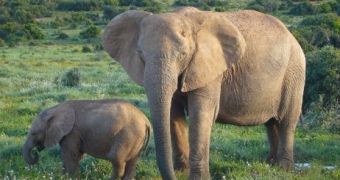Recent news from Africa says that a total of 1,000 soldiers and law-enforcement officials are to soon go looking for a group made up of 300 armed poachers.
The poachers are believed to come from Sudan, and their being present in Central African states such as Cameroon, the Central African Republic and Chad is linked to several killing sprees targeting the elephants left to inhabit these regions.
More precisely, it appears that these Sudanese poachers are the ones that must be blamed for the slaughtering of 86 elephants in Chad in just one week's time.
The World Wildlife Fund informs us that, despite their being on horseback, these poachers are most likely heavily armed.
Therefore, asking 1,000 soldiers and law-enforcement officials to track them down and try to capture them appears to be a very good idea.
More so given the fact that their being chased off these lands or arrested will make the local population feel more at ease, simply because heavily armed men will no longer be roaming the savanna.
As said organization explains, it may very well be that poachers are mainly interested in killing elephants and collecting their tusks in order to sell them on the black market, but this does not change the fact that such men constitute a threat to national and even international security.
“The emergency plan, estimated to cost around €1.8 million ($2.33 million), calls for the use of aerial support, land vehicles, the purchase of satellite phones, the establishment of a joint military command including real-time information sharing and analysis systems, as well as for sending a diplomatic mission to Sudan and South Sudan – where the poachers are believed to originate from,” the World Wildlife Fund writes on its official website.
For the time being, the organization hopes that other countries will also agree to implement such drastic measures and help safeguard the world's remaining elephants by curbing the illegal trade of their body parts.
“Now, it is up to demand countries – principally China and Thailand – to show that they have as much courage and determination as these Central African countries,” argued Bas Huijbregts, a conservationist now working with the World Wildlife Fund.

 14 DAY TRIAL //
14 DAY TRIAL //